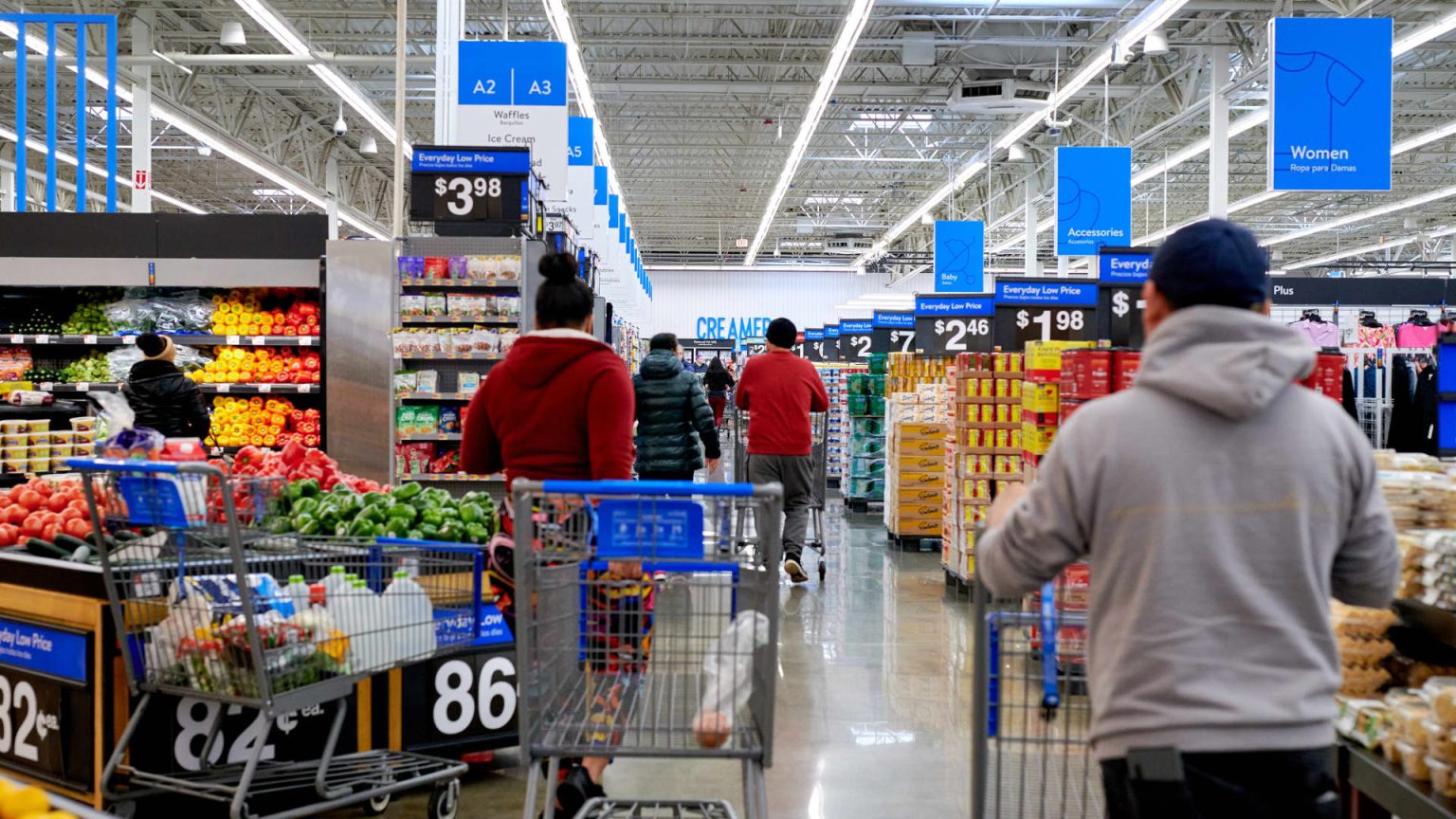Former Walmart U.S. CEO Bill Simon has warned that higher-income consumers may be creating a frothy situation at the retail giant. While these affluent shoppers have helped drive Walmart’s latest beat on quarterly results, Simon believes they will be hard to keep. He points out that Walmart’s success has historically been built on convenience, cost, and assortment, rather than service, and as the economic challenges ease, the importance of service will increase. This could lead to a shift in consumer behavior away from Walmart, creating a potential bubble in the market.
Despite Simon’s warning, Walmart stock has been hitting all-time highs, with shares surging almost 7% after the retailer’s fiscal first-quarter results exceeded expectations. High-income consumers have played a significant role in driving profits, particularly in the grocery business. However, Simon cautions that the tailwinds from food inflation that have propelled Walmart’s success may reverse eventually, affecting the company’s performance in the long term.
Simon had previously warned about the challenges facing lower-income consumers, as bargains were losing their appeal and consumer spending was showing signs of strain. Now, he believes that higher-income consumers shopping at Walmart may not be a positive sign for the broader economy. He suggests that even affluent consumers may change their behavior when faced with financial constraints, which could impact Walmart’s future performance.
Despite the potential bubble in the market, Simon still views Walmart as a great investment in the short term. He believes that as long as inflation remains a factor and food prices continue to rise, Walmart will continue to attract more customers. However, he acknowledges that the stock may face challenges in the next 24 months as inflation subsides and higher-end consumers move away from discount retailers like Walmart. Simon warns that as the importance of service outweighs price, Walmart’s tailwinds could turn into headwinds, affecting its growth prospects.
In conclusion, while Walmart has seen significant success in recent quarters, former CEO Bill Simon’s warning about a potential bubble in the market raises concerns about the retailer’s long-term sustainability. As higher-income consumers play a key role in driving profits, the company may face challenges if their behavior changes in response to economic conditions. While Walmart remains a strong investment in the short term, factors such as inflation and shifting consumer preferences could impact its performance in the future. It will be crucial for the company to adapt and innovate to maintain its competitive edge in the retail industry.


